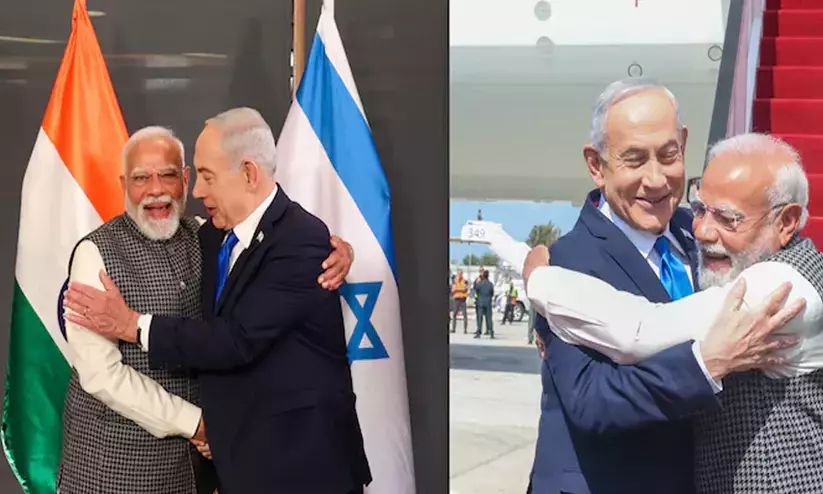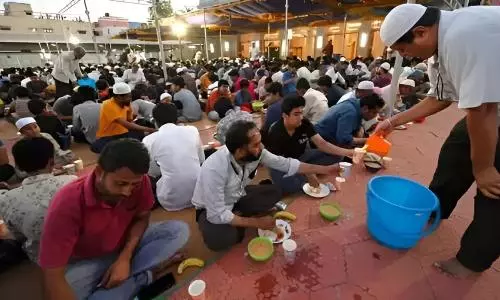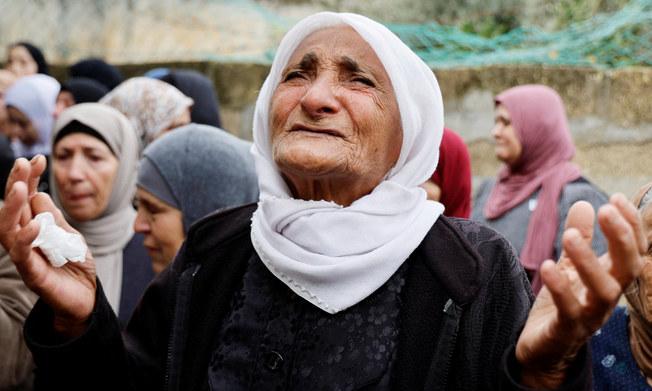
ICJ ruling leaves Palestinians disappointed and at a loss
text_fieldsContrary to expectations from the International Court of Justice regarding Israel’s indiscriminate and unilateral aggression, which many consider no less than genocide in Gaza, the interim order to Israel urging only to refrain from actions that may lead to genocide, instead of demanding an immediate ceasefire, has created a sense of loss among Palestinians.
The ICJ ruling on Friday was devastating and disheartening as Palestinians, not only in Gaza but also in the West Bank, continue to endure the relentless bombardment and ground invasion of their territory.
The ICJ's ruling, while acknowledging the severity of the situation in Gaza, stopped short of ordering an immediate ceasefire or demanding Israel to halt all military activities in the strip. Instead, the court issued provisional measures requiring Israel to comply with the 1948 Genocide Convention, allow more humanitarian aid into Gaza, and take action against those who issue genocidal statements.
For Palestinians who have witnessed the destruction and displacement caused by Israel's military campaign, the ICJ's decision is seen as a failure of the international community to address their plight effectively.
Palestinians feel the whole world is in confluence in witnessing their annihilation, leaving them in a situation of loss and betrayal, as the international agencies who are supposed to be with the oppressed and subjugated seem to align with world powers like the US and Israel.
Many expressed disappointment and disbelief upon hearing the court's ruling. They emphasized that what Palestinians in Gaza truly desire is not just aid or food, but a lasting ceasefire and an end to the war that has ravaged their lives and homes.
Palestinians believe that the ICJ's ruling was pointless and highlighted the lack of accountability for Israel's actions.
The devastating impact of Israel's military assault on Gaza is evident in the staggering death toll and widespread destruction. According to the United Nations, more than 26,000 Palestinians have been killed since October 7, with over 1.9 million internally displaced. The ongoing violence has targeted civilians, medical facilities, and infrastructure, exacerbating an already dire humanitarian crisis in the besieged enclave.
Despite international calls for Israel to protect civilian life and adhere to international law, the majority of victims in Gaza have been innocent women and children. The continued onslaught has left Palestinians in Gaza feeling abandoned and isolated, with little hope for a resolution to the conflict.
The United States' unwavering support for Israel, including military aid and diplomatic backing, has further fuelled resentment among Palestinians in Gaza. The US has vetoed several UN Security Council resolutions calling for a ceasefire, undermining efforts to address the humanitarian crisis.
As Palestinians in Gaza continue to endure the devastating consequences of Israel's military campaign, the ICJ's interim ruling has underscored the urgent need for meaningful action to end the violence and address the root causes of the conflict. However, without decisive international intervention, Palestinians fear that their suffering will only continue unabated, with no end in sight.
The ICJ Ruling
The court's decision, announced on Friday, outlines a series of emergency measures aimed at addressing the ongoing crisis in the region. Despite widespread anticipation for a comprehensive ceasefire order, the ICJ's directives fall short of mandating an immediate halt to hostilities.
The conflict in Gaza has been characterized by relentless violence, resulting in widespread devastation and loss of life. According to the United Nations, more than 26,000 Palestinians have been killed, and over 1.9 million individuals have been displaced as a result of the violence that erupted nearly four months ago.
In response to South Africa's accusations of genocide, the ICJ has issued six emergency measures directed at Israel. These measures include requirements for Israel to prevent acts outlined in the 1948 Genocide Convention, ensure its military refrains from carrying out such acts, prevent and punish incitement to commit genocide, facilitate the delivery of humanitarian aid, prevent the destruction of evidence of war crimes, and submit a report detailing its compliance with the court's orders within one month.
South Africa's lawsuit, filed in December 2023, accused Israel of violating the 1948 Genocide Convention during its military operations in Gaza. The case alleged that Israel's actions constituted genocide and called for urgent measures to protect Palestinian civilians and ensure access to essential services.
While the ICJ's ruling is binding on both South Africa and Israel as members of the United Nations, there is no mechanism for the court to enforce its orders directly. South Africa or other nations could seek action through the UN Security Council, where member states could vote on resolutions to compel Israel's compliance. However, past efforts have been hindered by the United States' use of its veto power to support Israel.
The ICJ's decision marks a significant development in the ongoing conflict between Israel and Gaza, shedding light on the legal ramifications of Israel's military actions and allegations of genocide. The ruling sets the stage for further deliberations and assessments of the evidence presented by South Africa, with potential implications for international law and diplomatic relations in the region.
As the ICJ's interim ruling reverberates across the international community, attention now turns to the implementation of the emergency measures outlined in the decision. While the court's directives aim to address the immediate humanitarian crisis in Gaza, achieving a lasting ceasefire and resolving the underlying conflict remains a formidable task for the international community.























